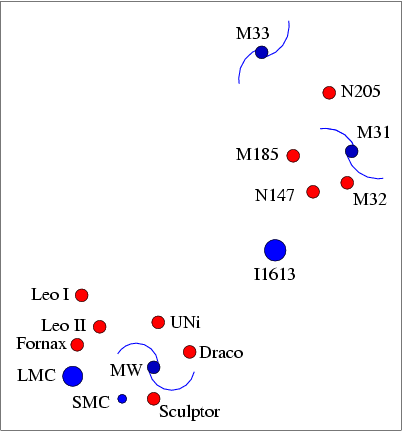 |
 |
| The Local Group of galaxies [NMSU, N. Vogt] |
Will M31 and the Milky Way merge? [J. Dubinsky, J. Barnes] |
We observe many instances (like this! and this!) where galaxies appear to be interacting with each other enough to cause obvious distortions. These interactions may have a significant connection with the way that galaxies evolve over time. It appears that most galaxies have a long history of numerous interactions with other galaxies. Spirals consume smaller galaxies and cannibalize their fuel, and ellipticals may be the product of large spiral galaxy mergers. There are strong tidal distortions, and bursts of new stars are formed as the gas clouds are compressed and shock waves rush through the galaxies.
Almost all galaxies in the Universe are moving away from us, due to the overall expansion of the Universe. A few nearby galaxies are actually moving toward us, however, because of local gravitational attractions. An example of this is the our neighbor Andromeda, which will collide with the Milky Way in about 3 billion years, as well as the many smaller (dwarf) galaxies which surround the two spirals. This merger looks like an amazingly destructive process, but the great plumes are all composed of gas clouds, while the small, dense stars of the disk will be far less affected. Nonetheless, disaster insurance wouldn't be a terrible idea ...
 |
 |
| The Local Group of galaxies [NMSU, N. Vogt] |
Will M31 and the Milky Way merge? [J. Dubinsky, J. Barnes] |
| Stephan's Quintet | NGC 2207 & IC 2163 | Arp 273 | NGC 3314 |
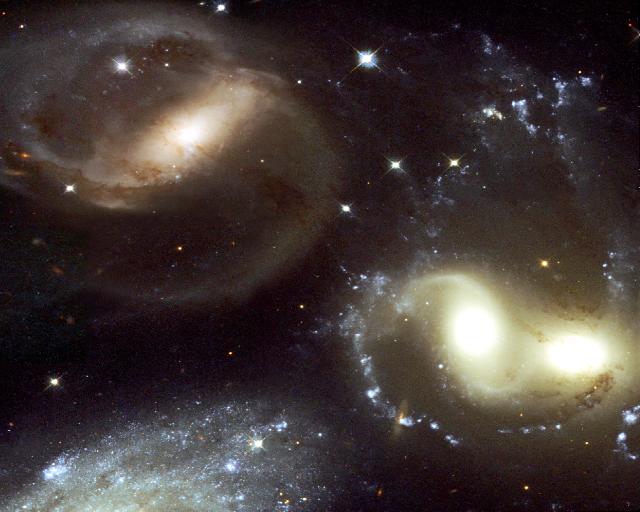 |
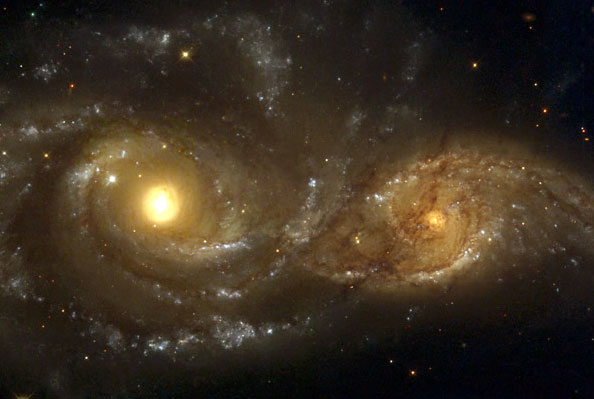 |
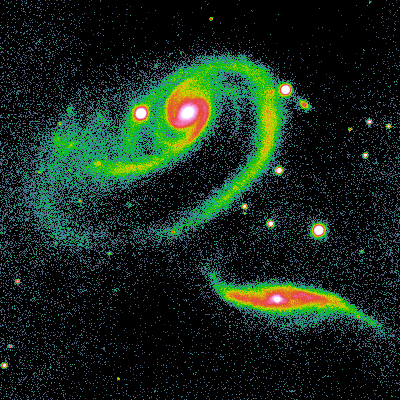 |
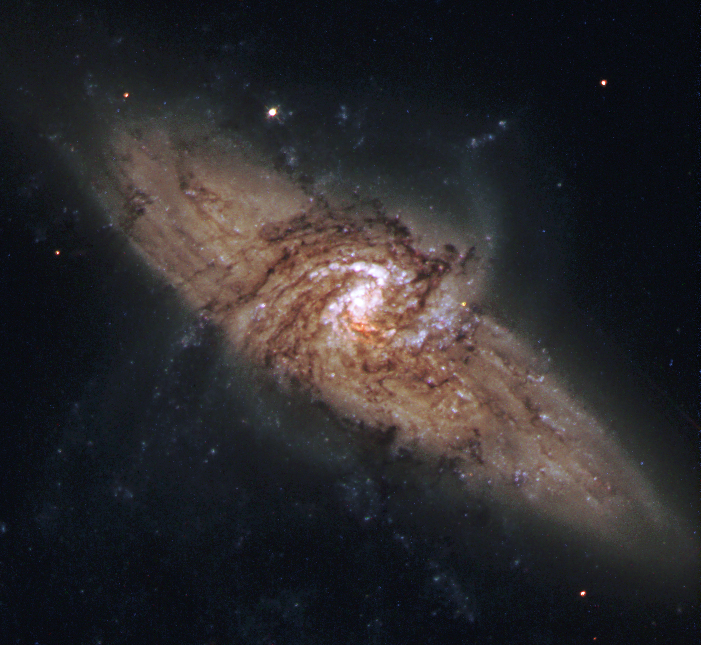 |
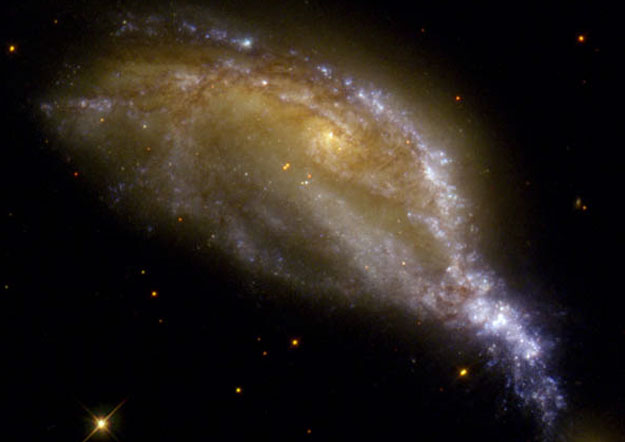 |
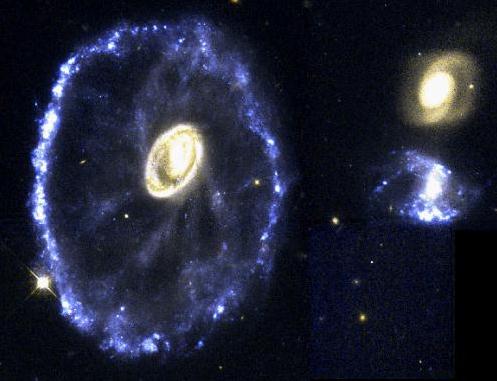 |
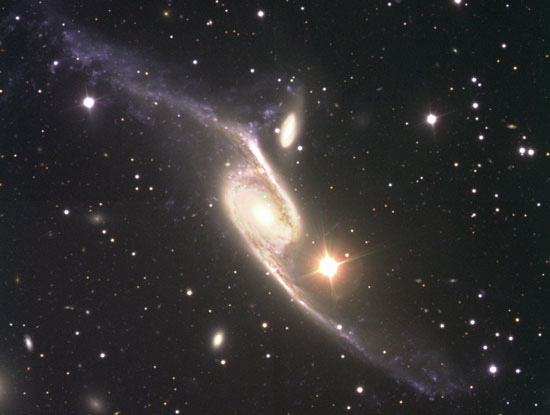 |
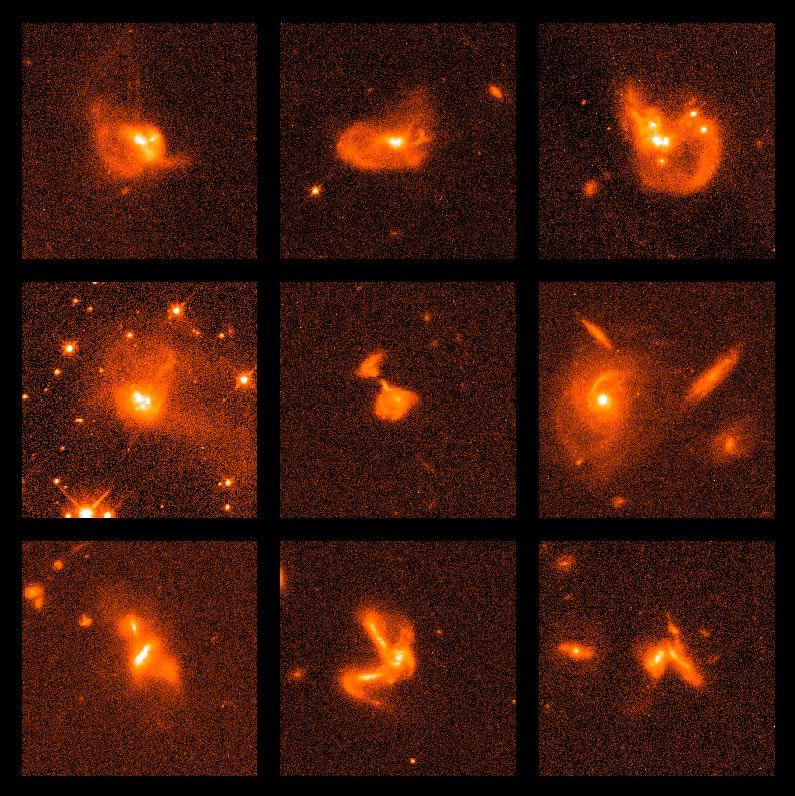 |
| NGC 6745 | Cartwheel | NGC 6872 | Collisions |
| How many of these galaxies are interacting? [NASA/HST, NSF/NOAO/WIYN, AAO] | |||